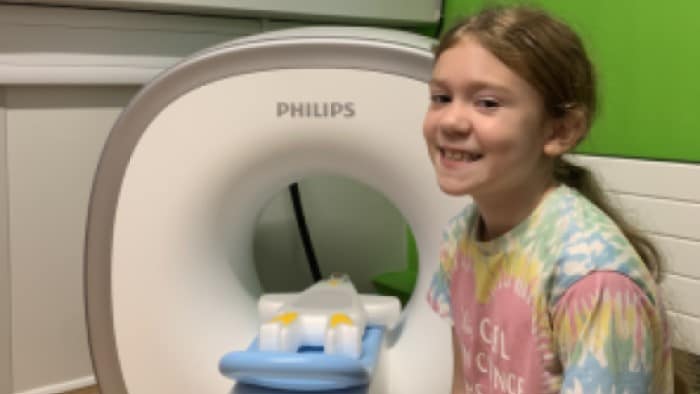Mar 22, 2022
New research shows urgent action is needed to tackle NHS carbon emissions, with widescale shift to circular economy required for the service to meet 2040 Net Zero goal
Farnborough, United Kingdom – Philips (NYSE: PHG, AEX: PHIA) – New research released today by the University of Exeter and Philips UK&I urges the NHS and its suppliers to systemically adopt circular economy (CE) practices in order to meet the NHS’s net zero by 2040 target and improve patient care. The research follows a key commitment made by the Government to achieve a net zero NHS by 2040, a UK-led COP26 Health Programme [1] and £280 million of funding to decarbonise the NHS estate between now and 2025.
A burning platform: urgent action needed to tackle carbon emissions and waste
The NHS’ Carbon Footprint and Carbon Footprint Plus (which includes the supplier footprint) are currently 6.1 MtCO2e [2] and 24.9MtCO2e per year respectively. Significantly, suppliers to the NHS are responsible for 62% of all NHS emissions. To achieve the target set by NHS Carbon Footprint Plus, the health service must achieve 8% CAGR [3] reductions in carbon emissions from 2020 to 2036, a rate far higher than the 1% historical average [4].
Mounting waste is also a major issue with providers in England creating nearly 600,000 tonnes of waste annually [5] at a management cost of £700 million per year. Hospital staff, healthcare workers, waste handlers, patients and the community at large are more exposed to infection, toxic effects and injuries as a result [6] .
NHS leaders have outlined their commitments to making health services more sustainable, but the pace of change has to swiftly accelerate. Our research has outlined that meeting the NHS’s ambitious net zero targets is only possible with the adoption of circular economy practices.
Professor Markus Zils
Professor for Circular Economy and Management Science at the University of Exeter, Co-Author of Accelerating the transition towards a net zero NHS
On the role of the NHS supply chain, Professor Zils continued, “It is critical that companies and key supply chain partners work with the NHS and wider health system to begin this journey. Such a transformation would dramatically enhance the patient experience, improve financial efficiency and reduce the system’s environmental impact.”
A sustained, collaborative approach to driving change
The report features independent interviews with a number of NHS Trusts alongside NHS England’s Green Team and presents three case study examples of best practice for applying a circular economy mindset to medical devices, services and solutions including: the impact of telehealth in paediatric cardiology, the positive outcomes from introducing digital pathology services and through introducing eco-design principles in hospital equipment such as low-helium MRI scanners. The case studies highlight different types of medical equipment used extensively in the NHS for diagnosis and treatment and illustrate how service delivery can be optimised whilst reducing carbon use and product and material requirements. From this research, the report states that to achieve a net zero health system by 2040, stakeholders across government, the NHS and industry must collaborate to set a new standard for procurement, improve supply chain due diligence and foster innovation to ensure that a shift to CE practices is sustained. To prompt action, the report makes 45 recommendations about how this can be achieved across three stakeholder parties – the NHS, suppliers and regulators. These have been condensed into nine key thematic recommendations, including:
| | | |
| Embrace Circular Economy business models through incentivising and targeting upstream supply chain partners. | Suppliers need to move beyond energy efficiency and incremental innovation to systemic innovation that embraces Circular Economy business models and long-term value creation. | Continually adapt policy and regulation to incentivise and nudge the NHS and its suppliers towards the adoption of Circular Economy practices to achieve NHS net zero ambitions. |
| Use procurement as a driver of emission reduction by underwriting Circular Economy compliance into the procurement process | Suppliers should align their products and services to the NHS Evergreen framework, showcasing Circular Economy solutions and evidence of reducing Scope 3 emissions. | Policy and regulation should fund and provide a cross-industry platform in pre-competitive spaces to road-test innovation and ensure quality is assured. |
| Become a test-bed for Circular Economy and green technology and develop carbon and financial savings use cases across a series of Circular Economy interventions. | Ensure stringent progress on Scope 1 and 2 emissions through clean-energy-powered manufacturing and designing out unnecessary waste. | Improve certification and the enforcement of Circular Economy standards to ensure viability of innovative services and avoid abuse. |
Mark Leftwich, Managing Director, Philips UK&I*, said: “The Government and NHS England are aligned to the net zero agenda and have set ambitious targets to achieve it. Trusts and suppliers must take urgent action to begin the process of change. Philips has been pioneering the transition to a circular economy to drive ambitious climate action and is actively supporting its suppliers and customers to achieve significant reduction of their footprints. As the NHS adapts to tackle growing backlogs for diagnosis and treatment, there is an opportunity to modernise models of care and procurement to actively target Scope 1, 2 and 3 carbon emissions and enhance patient care.” Mark continued, “Critically, the research tells us that net zero and circular economy approaches have been treated as two distinct areas of focus within the NHS, Government and supply chains. This needs to change. There needs to be a unified approach that treats circular economy practices as an answer to tackling the net zero goal and the growing backlog for diagnosis and treatment. Philips has long been an advocate for embedding circular economy practices into our own business models, and we are passionate about supporting the NHS to do the same.” The report features a foreword from Sally Edgington, Director of AXREM, the UK trade association representing the interests of suppliers of diagnostic medical imaging, radiotherapy, healthcare IT and care equipment, welcoming the findings. She said of the research: “I am delighted that this research has provided a vital and timely contribution, not only for assessing the scale of the challenge and opportunity, but also providing a clear approach to help the NHS achieve its net zero ambitions. The medical device and technology community must play a critical role, by furthering the recommendations made in this report, and supporting the NHS to fulfil its mandate for providing quality care, while simultaneously reducing its carbon footprint. AXREM shares the viewpoint of Philips that the two are not mutually exclusive. The industry must work with the NHS, regulators, HM Government and suppliers to fulfil this critical and urgent ambition. It is our responsibility to embark on this journey, together. We welcome the research and thank both Philips and the University of Exeter for their contributions.”
[1] https://www.who.int/initiatives/cop26-health-programme [2] Metric tons of carbon dioxide equivalent. CO2e represents an amount of a GHG whose atmospheric impact has been standardized to that of one unit mass of carbon dioxide (CO2), based on the global warming potential of the gas. [3] CAGR = Compounded Annual Growth Rate [4] Based on University of Exeter analysis [5] https://www.gov.uk/government/publications/chief-medical-officer-annual-report-2017-health-impacts-of-all-pollution-what-do-we-know [6] https://www.buildingbetterhealthcare.com/news/article_page/NHS_could_save_millions_by_improving_waste_management/102651 *Managing Director, Effective from 1st April 2022.
About Royal Philips
Royal Philips (NYSE: PHG, AEX: PHIA) is a leading health technology company focused on improving people's health and well-being and enabling better outcomes across the health continuum – from healthy living and prevention, to diagnosis, treatment and home care. Philips leverages advanced technology and deep clinical and consumer insights to deliver integrated solutions. Headquartered in the Netherlands, the company is a leader in diagnostic imaging, image-guided therapy, patient monitoring and health informatics, as well as in consumer health and home care. Philips generated 2020 sales of EUR 17.3 billion and employs approximately 77,000 employees with sales and services in more than 100 countries. News about Philips can be found at www.philips.com/newscenter.
Topics
Contact Details

Dominique Monaghan
UKI Communications and PR Manager
You are about to visit a Philips global content page
Continue










